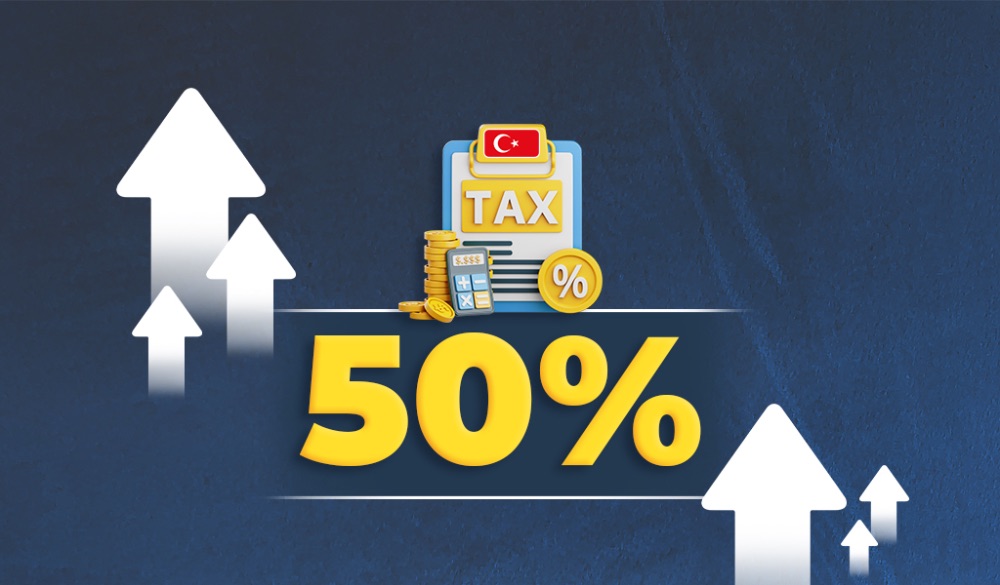
50% increase on the property purchase tax in Turkey
Navigating the Water of Turkish Real Estate: Impact of the New Title Deed Fee Structure
In a pivotal development that carries substantial implications for property investors and potential buyers, the Turkish government has recently enforced a significant augmentation in title deed fees. This critical change, made public through a notice in the Turkish Official Newspaper, manifests a 50% increase, indicating a crucial policy shift in the dynamics of Turkey's real estate sector.
As stipulated by Law No. 492, published in the Official Newspaper, fixed duty amounts have seen a 50% surge. To break it down, the title deed fee, known locally as 'tapu harcı', has undergone an upward adjustment, moving from 4% to a revised 6%.
This critical policy shift stands to reorient the landscape of the property market in Turkey significantly. With the increase in the 'tapu harcı', the initial expenditures linked to purchasing real estate in the country have risen correspondingly. This move, in turn, could influence the decision-making process of both local and international investors, as the cost of entry into the Turkish real estate market has been heightened.
The tax, calculated on the assessed value of the property at the time of sale, constitutes a significant portion of the total costs incurred by the buyer. This fee is typically shared equally between the buyer and the seller, unless a different arrangement has been agreed upon. Therefore, the sharp increase in title deed fees will directly affect investors' purchasing power, potentially leading to a deceleration in market transactions in the short term.
However, investors should adopt a long-term outlook regarding this new development. While the change might initially steepen the investment curve, the dynamic Turkish property market continues to promise appealing long-term returns. The combination of Turkey's strategic geographical positioning, robust infrastructure, and a resilient economy continue to render it an attractive location for real estate investment. Additionally, a robust regulatory framework and transparent transaction process provide further assurances to investors.
Furthermore, the updated title deed fees align more closely with global averages, contributing to the normalization and standardization of the Turkish real estate sector in line with international markets.
As the market adapts to this new development, potential investors are encouraged to review their investment strategies accordingly. With careful planning and due diligence, this policy alteration can be successfully navigated, ensuring the Turkish property market remains an enticing opportunity for rewarding prospects.
This significant development underscores the importance of having a knowledgeable and trusted advisor to guide you through these changing times. Whether you're a seasoned investor or considering your first property purchase, it's crucial to seek expert advice and guidance to successfully navigate the evolving landscape of the Turkish real estate market.

Related Articles

Escrow Accounts in Dubai: How They Protect Your Real Estate Investment
Dubai has become one of the world’s most attractive destinations for real estate investors. With strong government regulations, clear processes, and transparent systems, property buyers often ask: Is real estate investment in Dubai safe? One of the key answers lies in the Escrow account system. This article explains what an Escrow account is, how it protects buyers, and why it plays a major role in reducing risk in Dubai’s property market.

Residence Permits in Dubai Through Real Estate Investment: Everything You Need to Know
Dubai continues to be one of the most attractive destinations globally for real-estate investment — not only because of its world-class infrastructure and tax-friendly environment, but also because foreign investors can secure residence permits via property ownership. This article outlines the two main investment-linked residence routes in Dubai, details their requirements, explains how each works and highlights recent regulatory enhancements from the UAE government.

Dubai 2040 Urban Master Plan: A Vision That Will Reshape Real Estate Markets
Dubai has long been synonymous with bold urban planning, iconic architecture, and aggressive growth. The unveiling of Dubai’s 2040 Urban Master Plan marks its latest leap into long-term thinking, combining sustainability, smart infrastructure, and population management into a two-decade roadmap. As real estate stakeholders—investors, developers, homebuyers—seek to align with future trends, the 2040 plan offers both opportunity and risk.
In this article, we’ll explore:
- What the Dubai 2040 plan broadly entails
- Key mechanisms by which it can influence real estate supply, demand, and pricing
- Projected effects on ROI across residential, commercial, and mixed-use sectors
- Strategic considerations and warnings for investors
- How to position yourself now to benefit
Comments (1)
Name
July 07, 2023
nice 👌
You need to be logged in to comment